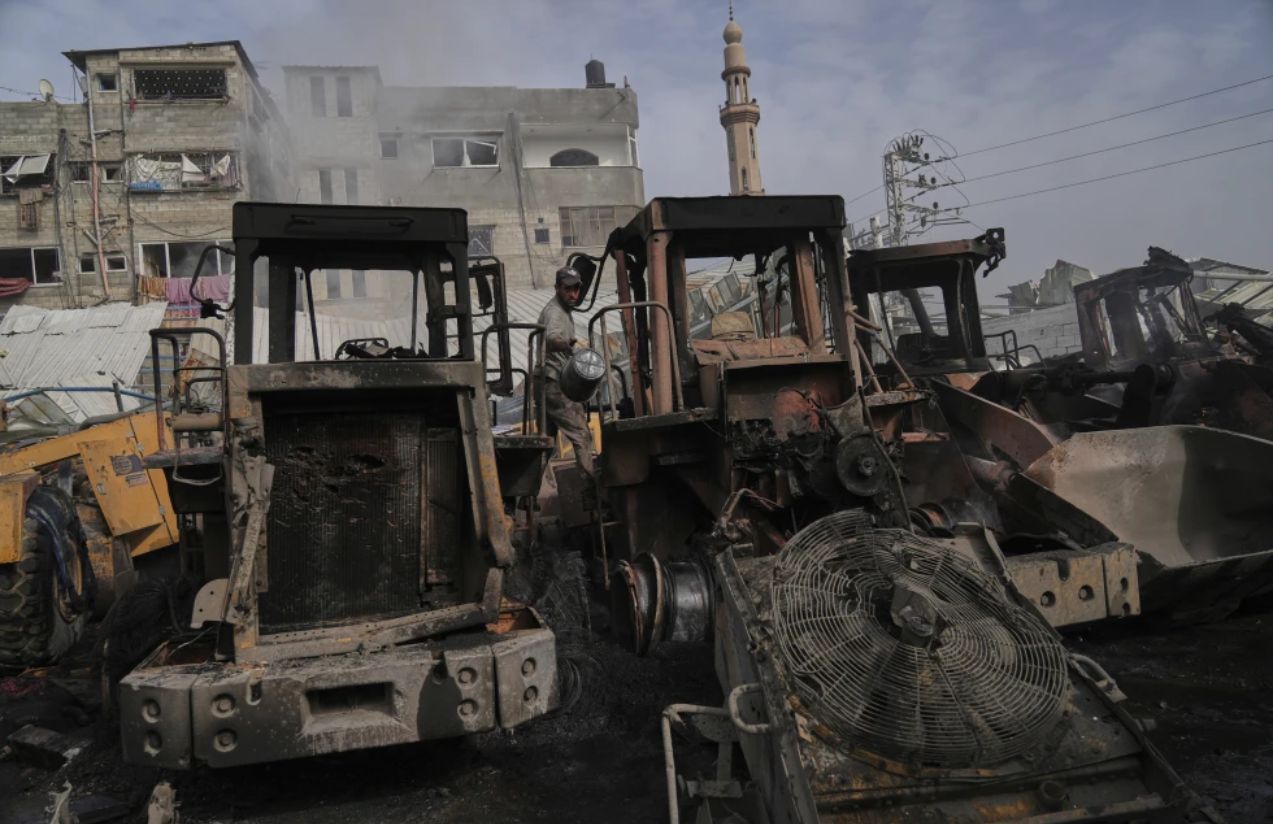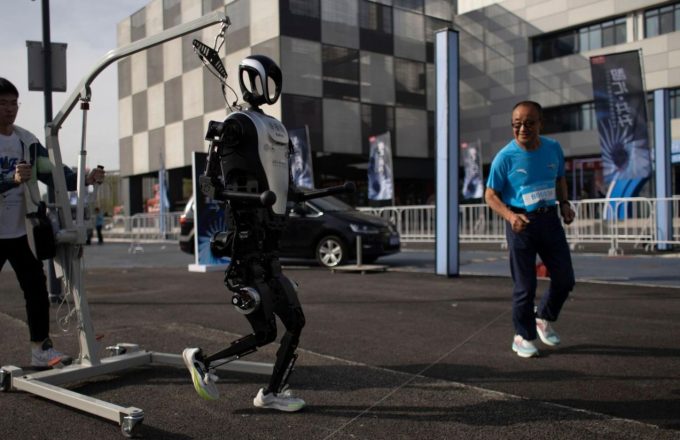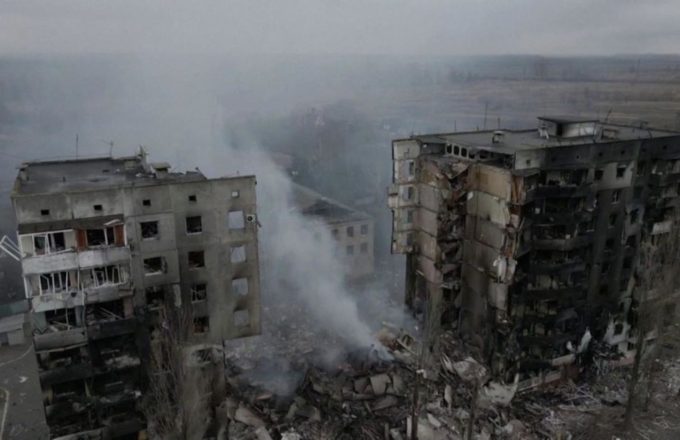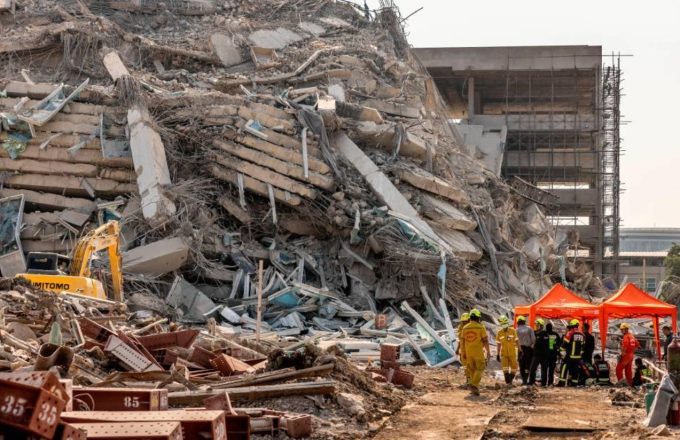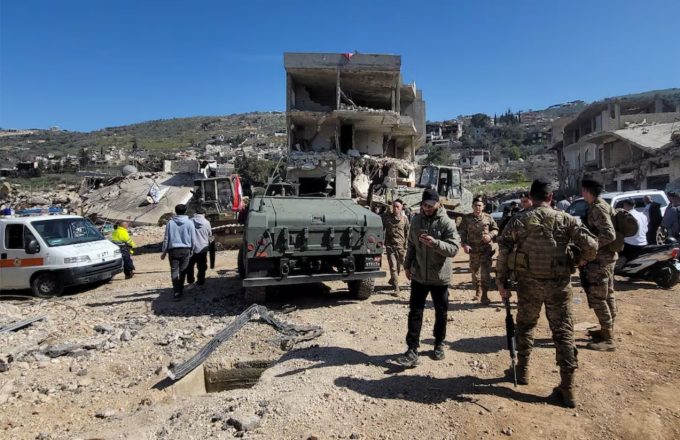Israeli airstrikes on the Gaza Strip killed at least 14 Palestinians on Tuesday—mostly women and children—and destroyed heavy machinery used for rescue and debris removal operations. Meanwhile, separate attacks in southern Lebanon claimed two more lives.
Israel’s military campaign against Hamas, now ongoing for 18 months, has devastated large swathes of the Palestinian enclave, raising growing concerns that many of those areas may never be rebuilt. The shortage of heavy equipment further worsens the crisis, as such machinery is vital for rescuing trapped victims, clearing roads, and restoring basic services.
A local council in Jabaliya, northern Gaza, reported that an airstrike destroyed nine excavators donated by Egypt and Qatar—two countries that had mediated a ceasefire agreement in January. Israel suspended the truce last month, resuming military operations and completely blocking the entry of goods into the enclave, including food, fuel, and medicine.
Local authorities said other destroyed assets included a water tanker, a mobile generator, and a vehicle used for sewage pumping, all provided by humanitarian organizations.
The Israeli military did not immediately comment on the incident. In general, it claims its strikes target militants and blames Hamas for civilian casualties, accusing the group of operating from densely populated areas.
In the early hours of Tuesday, an Israeli airstrike leveled a multi-story home in Khan Younis, in southern Gaza, killing nine people, including four women and four children, according to Nasser Hospital. Among the victims was a two-year-old girl who died with her parents. “They were sleeping peacefully. They had nothing to do with this war,” her grandfather, Awad Dahliz, said in anguish.
Another attack in the Jabaliya refugee camp killed three children and their parents, according to Gaza’s Health Ministry.
Since the start of the war, more than 51,000 Palestinians have been killed, according to ministry figures, which do not differentiate between civilians and fighters. Israel claims to have killed about 20,000 militants, though it has not provided evidence to support that figure.
The war began on October 7, 2023, when Hamas-led militants launched an attack in southern Israel, killing around 1,200 people—mostly civilians—and taking 251 hostages. Of those, 59 remain in captivity, with 24 believed to be alive.
Hamas has conditioned the release of the remaining hostages on a permanent ceasefire, a full Israeli withdrawal, and the release of Palestinian prisoners. Israel insists it will continue its offensive until all hostages are freed and Hamas is either dismantled or disarmed. The Israeli government has also pledged to maintain “security zones” in Gaza indefinitely.
In Lebanon, an Israeli drone strike killed Hussein Atwi—a local member of the Muslim Brotherhood—while he was on his way to work in southeastern Beirut. Another strike in Tyre province killed one more person, according to Lebanon’s Health Ministry.
Despite a ceasefire agreement with Hezbollah in November, Israel has continued its airstrikes in Lebanon, claiming to target militants and weapons depots. Since then, at least 190 people have been killed and 485 injured, according to Lebanese authorities.
Hezbollah began launching attacks on Israel the day after Hamas’ assault. In September last year, the conflict escalated into open war, with Israel carrying out intense bombings that killed several Hezbollah commanders.
Meanwhile, Palestinian Islamic Jihad reported the arrest of two of its senior members in Syria, with no comment from the Syrian government. The group—an armed faction allied with Hamas and backed by Iran—has maintained a presence in Syria since the Bashar al-Assad era and has sent fighters to Lebanon in support of Hezbollah.
The arrests coincided with a recent visit by Palestinian President Mahmoud Abbas to Damascus—his first since the Syrian conflict began in 2011. Abbas, who leads the Palestinian Authority and opposes Hamas, met with Syria’s new president, Ahmad al-Sharaa, following the fall of the Assad regime last year.


